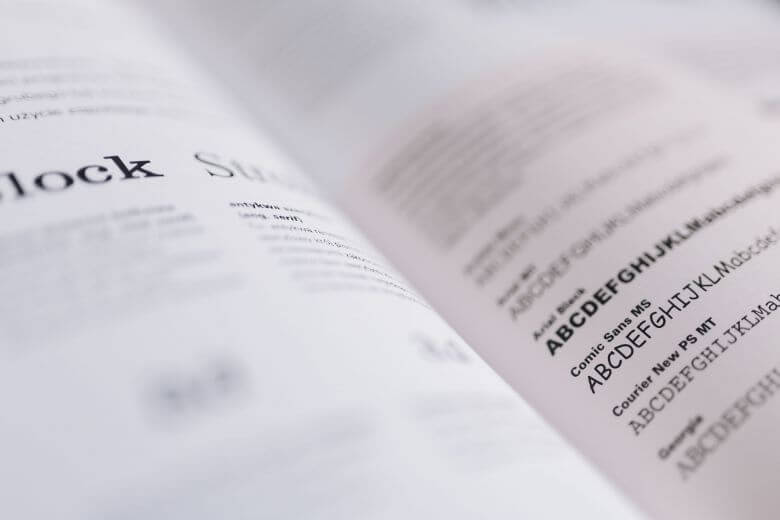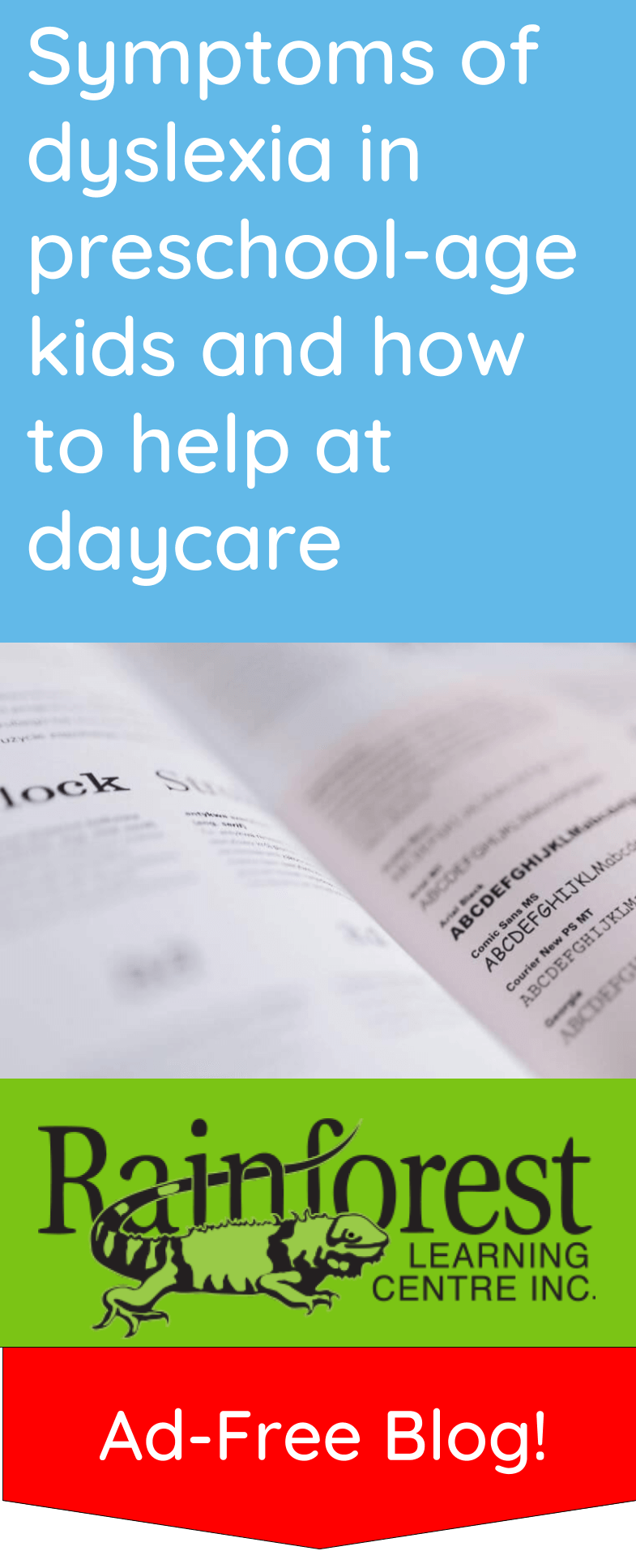
As a parent of a young child, you’re naturally wondering if your little one’s development is normal. This could come when comparing their milestones to kids around you. Are they saying enough words? Do they understand enough instructions for their age? Are they maturing properly?
It’s normal to wonder about these things. So in this article, we’ll cover a particular concern you may have as a parent: symptoms of dyslexia in preschool-age kids. And, if your child is in daycare, how can you get the proper help you need to treat this particular learning disability?
What are symptoms of dyslexia in preschool-age kids?
Describing symptoms of dyslexia in preschool-age kids isn’t too complex. Of course, professionals may look into more detail (you can read some of that here). But as a parent, you should watch out for these main signs:
- Inability to rhyme.
- Having notable problems remembering letters, or the sequence of letters and numbers.
- Speech deficiencies they should have outgrown for their age.
- Not knowing, or understanding enough words for their age.
- A strong dislike of reading or books.
- Getting simple instructions wrong.
Plus, if dyslexia runs in the family, you may want to be more alert when watching for the above symptoms.
As your child gets older, there may be more dyslexic signs to look out for. Some kids can go undiagnosed for a long time, since the symptoms are not always obvious.
Toddlers and preschoolers making mistakes, or not paying attention, aren’t necessarily dyslexic symptoms, but…
Of course, we need to say that as a parent of a toddler or preschool-age child, you shouldn’t be too alarmed by the above symptoms – at least not yet. If you do see your child expressing symptoms of dyslexia, your doctor or professional may recommend waiting until about kindergarten age for a formal diagnosis. However, don’t feel bad about insisting on tests, or getting more opinions.
That said, there are two important considerations to not overlook with your young child when it comes to reading or learning difficulties:
- If you suspect a problem at all, it may indicate another developmental issue. Other learning disabilities can affect reading an attention. And, kids with dyslexia can be prone to other neurological conditions. So your child may benefit from finding the associations early. Describe the symptoms to your doctor, as opposed to insisting it is dyslexia, and only that.
- You still want your child, if dyslexia is suspect, to be diagnosed and treated in early childhood. Some associations report that early intervention can be a great help to alleviating the struggles that dyslexia brings. In other words, yes, your preschooler can have dyslexia, and yes, it can be spotted. So in these cases, don’t let them go ignored.
How can a daycare program help a child with dyslexia symptoms?
A good daycare program may be able to offer some support to your child with dyslexia. However, like in a classroom setting, your child will still need particular attention and special needs help that go beyond the scope of childcare services. Since daycares are not part of government-funded education in B.C., they won’t all be required to follow procedures you may have heard about in typical classrooms, such as for older kids with learning disabilities.
That said, sympathetic daycares, and those with good early childhood educators on staff can help preschoolers with dyslexia in the following ways:
- By being attentive and patient with your child after learning of their special needs. This includes moral support and ensuring the child does not feel ‘stupid’ when they can’t fully participate in daycare activities.
- By implementing tertiary support systems for your dyslexic child, such as special seating, dyslexic fonts, assistive learning technologies, and so on.
- By offering special teaching methods to your child, such as more one-on-one attention to learn reading, comprehension and writing skills. Or, they may offer alternative ways to achieve learning tasks at daycare, so your child still feels like they fit in.
- By helping you find resources for government aid, or getting a diagnosis. Though, daycare educators are not experts in the field, so be mindful you’ll also need to do your own research. They may be a great place to start your inquiry, or to learn what to look for.
- For those in before and after school care, working within an Individual Education Plan (IEP) when helping kids with things like homework, practice activities or learning objectives.
Symptoms of dyslexia in preschool kids are not always a limitation when considering daycare
As we mentioned earlier, it’s normal for any parent to worry about their child’s development, especially if the child has special needs, like dyslexia. However, we also understand that fears can be amplified if your child is in also in daycare. You may be asking: “Will they get the added support they need?” or, “Will the daycare environment make things harder for my child who already struggles with learning?”
However, in cases of dyslexia symptoms, especially for young children, daycare is not always a limitation. In fact, with the right early childhood educators, your child may get added benefit from being in a social environment, where love of learning is encouraged. In small group settings, the kids can also feel more included, which may make it easier to make friends, for those that are shy.
And, as we’ve seen above, daycares can support children with dyslexia, if they are aware of the issue, and how to help.
If you feel there is ever a problem with your dyslexic child being in daycare, it may be worth having a talk with the daycare coordinators to find solutions. They may be more willing to ‘go the distance’ than you may realize! And if not, there will probably be another daycare out there that is the right fit for your child.
See related posts:
